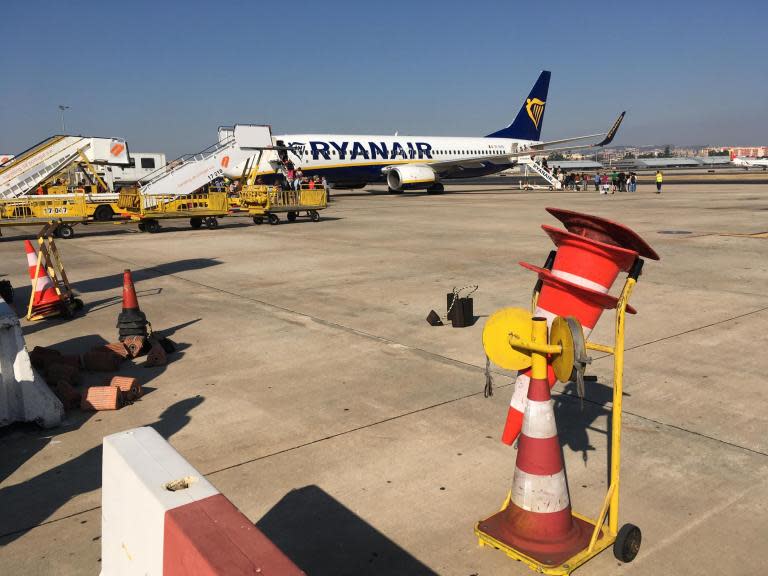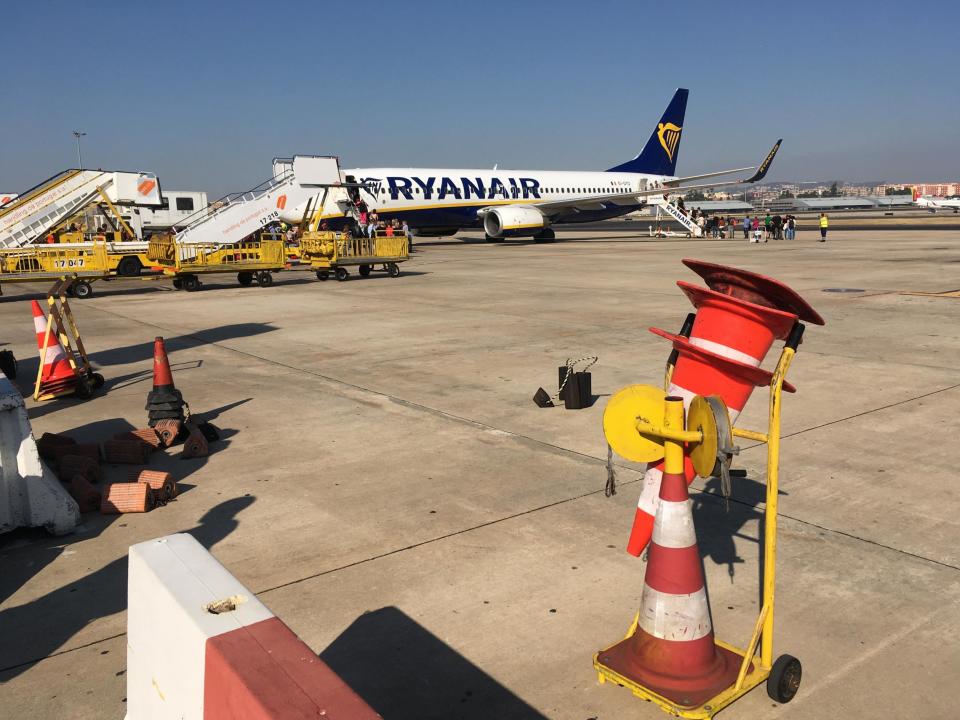Ryanair profits down amid fears of no-deal Brexit and warning of more summer strikes
At the start of a week in which more than 100,000 Ryanair passengers have seen their flights cancelled by a series of strikes, the airline is warning of more to come.
Announcing a 20 per cent fall in profits in its first quarter results, Ryanair said: “While we continue to actively engage with pilot and cabin crew unions across Europe, we expect further strikes over the peak summer period as we are not prepared to concede to unreasonable demands that will compromise either our low fares or our highly efficient model.”
Pilots employed by the airline in Ireland are expected to stage their third one-day strike on Tuesday, with the cancellation of 16 flights between the UK and Dublin. They are in dispute over seniority and base transfers.
On Wednesday and Thursday, 600 flights are being cancelled because of a strike by cabin crew based in Spain, Portugal and Belgium. Collectively, trades unions representing cabin crew across Europe have raised 34 demands.
More than 100,000 passengers have been affected by this week’s strike. The Civil Aviation Authority has urged them to claim compensation, though Ryanair says it is not obliged to pay out since the strikes constitute “exceptional circumstances”.
The airline warned that it might cut jobs at bases where industrial action has taken place, saying: “If these unnecessary strikes continue to damage customer confidence and forward prices/yields in certain country markets then we will have to review our winter schedule.”
Ryanair said that could include fleet reductions at disrupted bases. “We cannot allow our customers’ flights to be unnecessarily disrupted by a tiny minority of pilots,” the airline said.
On Brexit, the airline warns: “We remain concerned by the danger of a hard [“no-deal”] Brexit in March 2019.
“While there is a view that a 21-month transition agreement from March 2019 to December 2020 will be implemented (and extended), recent events in the UK political sphere have added to this uncertainty, and we believe that the risk of a hard Brexit is being underestimated.”
Ryanair said that, in the event of a hard Brexit, the voting rights of UK shareholders may have to be restricted “to ensure that Ryanair remains majority owned and controlled by EU shareholders”.
The World Cup, northern Europe’s heatwave and uncertainty about strikes are blamed for downward pressure on fares. Compared with last year, fares in April, May and June this year fell by 4 per cent to an average of €39 (£35).
“We continue to see overcapacity in the European market, with Germany in particular very price competitive this summer,” said Ryanair.
Ancillary revenue, for extras such as assigned seating and checked baggage, rose during the quarter. But the higher revenue was offset by increased fuel and staff costs.
Ryanair said it suffered 2,500 flight cancellations between April and June, “caused by ATC staff shortages and ATC strikes”. Care for disrupted passengers rose 40 per cent in the quarter.

 Yahoo Finance
Yahoo Finance 

